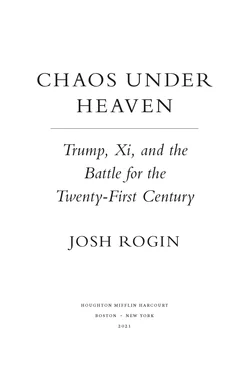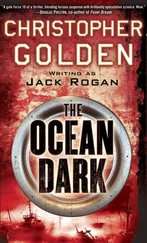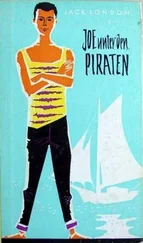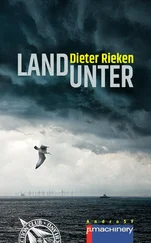Nevertheless, Trump finished out his campaign blaming the “plague from China” for foiling his reelection prospects at nearly every rally. Even the head of the Republican National Committee, Ronna Romney McDaniel, was warning before Election Day that “if he loses, it’s going to be because of covid.” Of course, there is never only one reason for the result of a presidential election. Struggles over social justice, race relations, the future of health care, and the makeup of the Supreme Court were also core election issues. But the president believed the pandemic did him in. And as it became clear how much the SARS-CoV2 pandemic was costing him politically, his relationship with his Chinese counterpart gradually iced over. As of this writing, his last call with his “great friend” President Xi was in late March, nearly ten months before he left office.
In a way, Trump ended up where he started, earnestly blaming China for most of America’s ills while politicizing the issue as much as possible for his own benefit. But getting back to square one was an epic journey. Trump angered Xi right off the bat, then built a relationship with him, then tested that relationship through a trade war, then declared a deal and a truce, only to have that all blow up when the pandemic hit. Trump had come full circle—but what a long, strange trip it had been.
Final Battles
As the Trump administration had braced for the election, only a smattering of battle-hardened veterans were on hand to see the full evolution of the relationship from 2016 through 2020. The only officials from Trump’s original China team to have survived the president’s entire term were Matthew Pottinger, Peter Navarro, Robert Lighthizer, Wilbur Ross, and Steve Mnuchin. The coterie of former Goldman Sachs billionaires and other Wall Street Illuminati had faded away as Trump stopped valuing their ability to backchannel to Beijing. Michael Pillsbury never did get an administration job, but he surely took solace in the fact that all the China experts who had long seen him as the oddball now had to acknowledge he was probably the China hand closest to the president of the United States.
The internal administration struggles over China policy played out right until the end, along well-established lines. The national security team, taking advantage of Trump’s sour attitude toward Xi, were able to convince the president to sign off on new Taiwan arms sales, broad sanctions on companies that abused Uyghurs, an executive order banning TikTok and WeChat, and new regulations restricting US capital market access to companies linked to China’s military. But Mnuchin opposed each of these moves and continued to defend Wall Street’s practice of funneling US investors’ money into Chinese companies of all kinds. The result was that the end of the Trump administration’s approach to China appeared every bit as chaotic and confusing as had been its beginning.
A case in point was when, just months before the election, Trump had sided with his national security officials in signing the ban on TikTok and WeChat—but then had promptly handed the TikTok issue to Mnuchin, who quickly changed the priority from safeguarding national security to saving the company. Mnuchin tried to negotiate between TikTok’s Chinese parent company, ByteDance, and Oracle, Trump’s favorite tech company, to have Oracle take over TikTok’s US operations in preparation for a Wall Street-supported IPO that would make everybody rich. The problem was, Beijing had no intention of letting ByteDance sell its intellectual property to the United States at the point of a gun. Now China was accusing the United States of forcing it into a joint venture in exchange for market access in a form of forced technology transfer. And they had a point. As if to accentuate the arbitrary nature of the arrangement, Trump was demanding the deal include a $5 billion payoff to the US government in what he called “key money.” As of this writing, the TikTok and WeChat ban was held up in US courts. Pottinger was working to expand it over a dozen other Chinese apps in late 2020, but the ongoing court battles made additional bans too difficult.
As 2020 came to an end, the Wall Street firms were doubling down on their investments in China. Billions of US investor dollars were set to be used to support the IPO of Jack Ma’s Ant Financial on the Hong Kong and Shanghai stock exchanges. This $35 billion deal, to be split between the two Chinese cities, was meant to prove that Hong Kong could still be a top financial hub even after the crackdowns on freedom and democracy.
Trump’s national security officials were contemplating how to throw a wrench into the deal, even as they knew that the approaching election meant that their time for subterfuge might be limited. But Beijing could not be allowed to crush Hong Kong’s autonomy and still use the region to milk the West for money.
Then Xi solved the problem himself. Chinese authorities killed the Ant Financial IPO in early November. It was widely reported that Xi was crushing Ma for becoming too rich, too powerful, and too outspoken. Although the Chinese government had a real interest in proving that its huge tech and financial companies were world class, Xi completely undermined that argument by accusing Ma’s company of not being suitable for a public offering. For Xi, the political goal was more important than the economic goal. The CCP was truly, and nakedly, putting politics and ideology above all else.
For the Trump national security officials, this was a clear vindication of the argument they had been making the entire time—that US investors bet on Chinese companies at great risk—because Chinese companies and their leaders can be squashed by the Beijing leadership at any time without warning. Xi was doing the opposite of what would promote the stable and safe corporate image Chinese companies depended on, because he needed to demonstrate total political control. It was now crystal clear there was no such thing as a Chinese company that didn’t have to answer to the CCP. Wall Street could no longer pretend otherwise.
Pottinger’s Last Play
In the final weeks before the 2020 election, the US-China relationship objectively had reached a historic low. Inside the United States, the China issue had become so politicized and polarized that the room for constructive discussion had all but evaporated and each side invoked China to accuse the other of every sin from greed to treason. Trump’s national security officials toured the country making harshly critical (and largely accurate) speeches railing against the CCP. They were engaging in policy and politics at once—for the hardline approach was now the politically smart approach as well.
As Trump’s national security officials, led by Pottinger, contemplated a Biden victory and the end of their time in government, they worked to cement as many wins as possible in the US-China competition before a new administration might come in and change the rules of engagement. The Justice Department announced the arrest of a network of Chinese intelligence agents who had been illegally kidnapping dissidents and smuggling them out of the United States—what prosecutors called Operation Fox Hunt. The State Department continued naming Chinese media and influence organizations as foreign agents, to put in place reporting requirements a new administration would have a hard time arguing to remove.
Pottinger began organizing briefings over video teleconference with huge teams of officials from foreign governments, to lay out for them the competition framework he had helped put in place. He focused on engaging allied countries like Canada, India, and the United Kingdom. He wanted to institutionalize the shift in strategy and pass along to a Biden administration as much of it as they were willing to preserve.
Читать дальше











